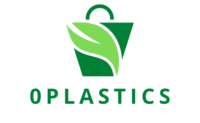As the world grapples with the environmental consequences of plastic consumption, a profound shift towards holistic sustainability is reshaping the landscape of product alternatives. Beyond the immediate focus on eliminating plastics, consumers, businesses, and innovators are exploring comprehensive solutions that embrace sustainability in all aspects of product design, sourcing, and lifecycle. Let’s delve into the multifaceted realm of holistic sustainability in product alternatives, examining the diverse approaches that go beyond plastics to create a more eco-conscious and responsible future.
1. Sustainable Materials:
Holistic sustainability begins with the careful selection of materials used in product alternatives. Beyond avoiding plastics, eco-friendly alternatives include materials like bamboo, hemp, organic cotton, and recycled metals. These materials are renewable, biodegradable, and often have a lower environmental impact compared to traditional counterparts, contributing to a more sustainable supply chain.
2. Ethical Sourcing and Fair Labor Practices:
Holistic sustainability extends beyond environmental considerations to encompass ethical sourcing and fair labor practices. Companies are increasingly prioritizing suppliers and production processes that adhere to fair labor standards, ensuring that the human impact throughout the supply chain is both ethical and just. Transparent and responsible sourcing practices are becoming integral to holistic sustainability efforts.
3. Minimalist and Multi-Functional Design:
Creating products with minimalist and multi-functional designs is a key aspect of holistic sustainability. By emphasizing simplicity and versatility, products reduce resource consumption and waste. This approach encourages consumers to invest in fewer, high-quality items that serve multiple purposes, contributing to a more sustainable and intentional lifestyle.
4. Energy-Efficient Manufacturing:
Holistic sustainability considers the entire product lifecycle, including the manufacturing process. Innovators are exploring energy-efficient manufacturing methods, incorporating renewable energy sources, and implementing technologies that reduce carbon footprints. By minimizing the environmental impact of production, product alternatives contribute to a more sustainable and responsible industry.
5. Closed-Loop Systems and Circular Economy:
Embracing closed-loop systems and circular economy principles is integral to holistic sustainability. Products designed with recyclability and reusability in mind contribute to reducing waste. Companies are exploring ways to create closed-loop systems where products can be recycled or repurposed at the end of their life cycle, promoting a more circular and regenerative approach.
6. Carbon Offsetting and Climate Neutrality:
Acknowledging the environmental impact of product alternatives, many companies are adopting carbon offsetting initiatives to achieve climate neutrality. This involves investing in projects that reduce or capture an equivalent amount of carbon emissions produced during the product’s lifecycle. Holistic sustainability includes a commitment to mitigating the overall carbon footprint of products, contributing to global climate action.
7. Water Conservation and Responsible Usage:
Water is a precious resource, and holistic sustainability in product alternatives involves responsible water usage. Innovators are exploring materials and production processes that minimize water consumption and pollution. By prioritizing water conservation measures, products contribute to environmental stewardship and address the challenges associated with water scarcity.
8. Educational and Transparency Initiatives:
Holistic sustainability incorporates educational initiatives and transparency measures. Companies are actively engaging with consumers to raise awareness about sustainable living practices, environmental impact, and the benefits of choosing eco-friendly alternatives. Transparent communication about sourcing, production methods, and the overall sustainability journey builds trust and empowers consumers to make informed choices.
9. Social Impact and Community Engagement:
Beyond environmental considerations, holistic sustainability embraces social impact and community engagement. Companies are aligning their values with community development initiatives, supporting local economies, and actively contributing to social well-being. By fostering positive relationships with the communities they serve, product alternatives become catalysts for broader positive change.
In conclusion, the pursuit of holistic sustainability in product alternatives represents a paradigm shift that goes beyond merely eliminating plastics. By considering materials, ethical practices, design principles, manufacturing processes, circular economy concepts, carbon offsetting, water conservation, education, and community impact, businesses and innovators are creating a new standard for responsible and eco-conscious alternatives. This holistic approach acknowledges the interconnectedness of environmental, social, and economic factors, paving the way for a more sustainable and regenerative future.
